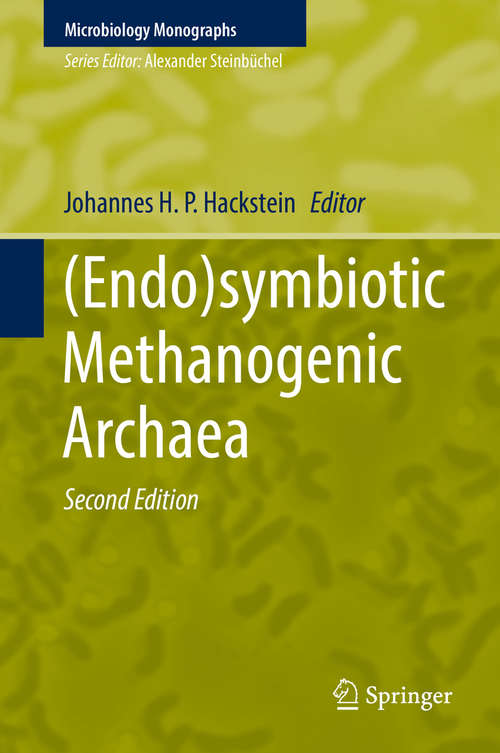(Endo)symbiotic Methanogenic Archaea
By:
Sign Up Now!
Already a Member? Log In
You must be logged into Bookshare to access this title.
Learn about membership options,
or view our freely available titles.
- Synopsis
- This updated monograph deals with methanogenic endosymbionts of anaerobic protists, in particular ciliates and termite flagellates, and with methanogens in the gastrointestinal tracts of vertebrates and arthropods. Further chapters discuss the genomic consequences of living together in symbiotic associations, the role of methanogens in syntrophic degradation, and the function and evolution of hydrogenosomes, hydrogen-producing organelles of certain anaerobic protists. Methanogens are prokaryotic microorganisms that produce methane as an end-product of a complex biochemical pathway. They are strictly anaerobic archaea and occupy a wide variety of anoxic environments. Methanogens also thrive in the cytoplasm of anaerobic unicellular eukaryotes and in the gastrointestinal tracts of animals and humans. The symbiotic methanogens in the gastrointestinal tracts of ruminants and other “methanogenic” mammals contribute significantly to the global methane budget; especially the rumen hosts an impressive diversity of methanogens. This makes this updated volume an interesting read for scientists and students in Microbiology and Physiology.
- Copyright:
- 2018
Book Details
- Book Quality:
- Publisher Quality
- ISBN-13:
- 9783319988368
- Related ISBNs:
- 9783319988351
- Publisher:
- Springer International Publishing
- Date of Addition:
- 11/27/18
- Copyrighted By:
- Springer
- Adult content:
- No
- Language:
- English
- Has Image Descriptions:
- No
- Categories:
- Nonfiction, Science, Animals
- Submitted By:
- Bookshare Staff
- Usage Restrictions:
- This is a copyrighted book.
